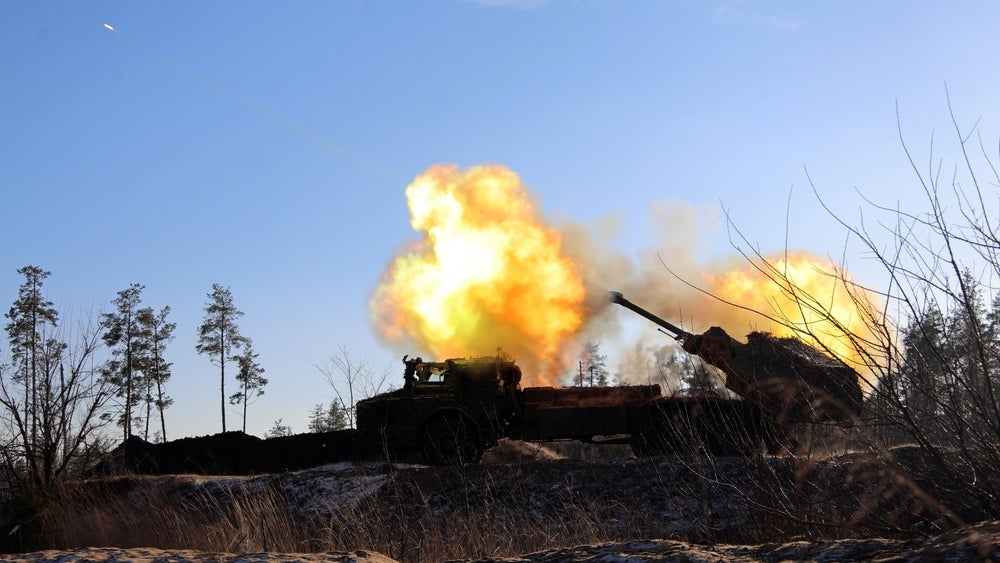As the attritional costs of the war in Ukraine continue to consume both locally produced and donated equipment, concerns regarding the sustainability of current military aid efforts have created headaches for policymakers and industry players.
The facilities of Ukrainian defence companies have been subjected to targeting from both kinetic strikes and cyberattacks since the Russian invasion of the country in February 2022, reducing manufacturing capacity and driving up the cost of maintaining supporting infrastructure. Meanwhile, numerous European companies have engaged with the Ukrainians and their respective domestic governments seeking to act as equipment suppliers, though political reluctance to commit to long-term procurement contracts combined with historic underinvestment in domestic manufacturing capabilities has left them struggling to increase their production capacity. These challenges subsequently undermine the pace at which foreign equipment can be supplied to the Ukrainian armed forces, resulting in negative battlefield outcomes which further increase demand for additional foreign aid.
To circumvent these inefficiencies and create a more sustainable procurement pipeline, several European defence companies – and more recently governments themselves – have begun investing in joint initiatives with the Ukrainian Defense Industry Joint Stock Company, which has been designed to reinforce Ukraine’s defence manufacturing capabilities. German arms manufacturer Rheinmetall pioneered this approach back in March 2023 when its CEO Armin Papperger announced his intention to open factories in Ukraine to position the company as a key partner within the Ukrainian defence market and thus guarantee favourable consideration during future Ukrainian modernisation efforts.
Manufacturing facilities planned for armoured vehicles, ammunition, air defence systems and gunpowder
While the initial announcement foresaw the creation of a plant to develop Rheinmetall’s latest generation Panther main battle tanks, the initiative has since expanded with plans for multiple manufacturing facilities for equipment including armoured vehicles, ammunition, air defence systems and gunpowder. While it is not without risk, Rheinmetall remains confident in this approach and in October 2024 announced the opening of a factory producing KF41 Lynx armoured fighting vehicles, with the first deliveries targeted for the end of 2024.
Other European defence manufacturers and governments have increasingly gravitated towards this approach throughout 2024, most likely driven by continued uncertainty regarding the US presidential election and its potential impact on US policy vis-à-vis both Ukraine and the NATO alliance. In May 2024, a conference held in Brussels was attended by more than 100 Ukrainian and European companies to discuss foreign direct investment opportunities within the Ukrainian defence sector.
According to Oleksandr Kamyshin, Ukrainian Minister for Strategic Industries, a $10 to $12 billion funding gap separates what the Ukrainian defence sector could produce from the available procurement funding. Consequently, the meeting focused on leveraging the strong material demand and the availability of specialist labourers within the Ukrainian market to offset shortcomings in European defence manufacturing. Such investments could enable participants to better meet growing demand from their own governments, while – like Rheinmetall – ensuring a better competitive position in future long-term Ukrainian defence procurements.
European governments make direct financial commitments
Defence companies themselves are not the only sources of foreign direct investment in the Ukrainian defence sector, as European governments also make direct financial commitments to enhancing manufacturing capabilities. In April 2024, the Danish government allocated DKr 200 million ($28.9 million) in funding to support Ukraine’s defence sector, bringing the total value of Denmark’s investments to $190 million. European policymakers have also leveraged the reappropriation of frozen Russian assets to support these investment initiatives, with recent reports indicating that the European Union has allocated $440 million in income from these assets towards the Ukrainian defence sector.
This is only a portion of $1.5 billion in financial support funded through frozen Russian assets following an agreement between EU leaders in May 2024, highlighting the scale at which such efforts are being pursued and reflecting a grudging recognition of Europe’s continued failure to meet its own defence manufacturing requirements. As for Ukrainian companies, such funding provides a much-needed source of financial relief while shoring up investor confidence and creating the foundations for mutually beneficial relationships with both emergent and well-established European defence manufacturers.





